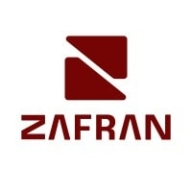


Tenable Nessus and Tines are key players in the cybersecurity industry. While Tenable Nessus is renowned for its comprehensive vulnerability assessment capabilities, Tines stands out with its robust security automation features.
Features: Tenable Nessus is celebrated for its extensive vulnerability database, precision in scans, and ability to support diverse systems and applications. Its main strength is identifying security weaknesses and providing actionable insights. Tines provides customizable automation workflows capable of integrating various security tools and streamlining incident responses within an organization.
Room for Improvement: Tenable Nessus could enhance user interface and simplify complex functionalities to improve user experience. It may also benefit from integrating more automation capabilities and refining its reporting features for better clarity. Tines might improve in handling an extensive range of vulnerabilities, offering more in-depth insights akin to Nessus, and providing broader support for third-party integrations to enhance its versatile automation.
Ease of Deployment and Customer Service: Tenable Nessus boasts straightforward deployment with comprehensive documentation and support to assist setup, offering flexible deployment options for various environments. Tines emphasizes user-friendly automation requiring minimal coding and delivers robust customer support, focusing on simplifying complex security tasks through integration.
Pricing and ROI: Tenable Nessus entails initial licensing investment based on asset count, often regarded as cost-effective for its thorough vulnerability coverage, with ROI evident in its competency to prevent breaches. Tines requires investment in automation customization, providing ROI through time savings achieved from streamlined operations, contributing to efficiency and resource optimization.
| Product | Market Share (%) |
|---|---|
| Tenable Nessus | 8.0% |
| Wiz | 10.8% |
| Qualys VMDR | 6.9% |
| Other | 74.3% |
| Product | Market Share (%) |
|---|---|
| Tines | 7.3% |
| Microsoft Sentinel | 16.3% |
| Palo Alto Networks Cortex XSOAR | 9.7% |
| Other | 66.7% |



| Company Size | Count |
|---|---|
| Small Business | 37 |
| Midsize Enterprise | 19 |
| Large Enterprise | 35 |
Zafran Security integrates with existing security tools to identify and mitigate vulnerabilities effectively, proving that most critical vulnerabilities are not exploitable, optimizing threat management.
Zafran Security introduces an innovative operating model for managing security threats and vulnerabilities. By leveraging the threat exposure management platform, it pinpoints and prioritizes exploitable vulnerabilities, reducing risk through immediate remediation. This platform enhances your hybrid cloud security by normalizing vulnerability signals and integrating specific IT context data, such as CVE runtime presence and internet asset reachability, into its analysis. No longer reliant on patch windows, Zafran Security allows you to manage risks actively.
What are the key features of Zafran Security?
What benefits can users expect from Zafran Security?
In industries where security is paramount, such as finance and healthcare, Zafran Security provides invaluable protection by ensuring that only exploitable vulnerabilities are addressed. It allows entities to maintain robust security measures while allocating resources efficiently, fitting seamlessly into existing security strategies.
Tenable Nessus provides an efficient vulnerability management system with swift deployment and comprehensive scanning capabilities, making it an ideal choice for organizations seeking to enhance their security posture through effective threat detection and mitigation strategies.
Renowned for its top-tier vulnerability detection, Tenable Nessus offers a robust platform that integrates effortlessly across systems, enhancing threat management through automation, real-time monitoring, and customizable scanning options. Its broad asset coverage, including network devices and applications, coupled with ease of deployment, positions it as a go-to option for risk assessment and compliance. Organizations value its extensive reporting features and database, although they suggest enhancements in reporting formats and false positive detection. A more intuitive interface, improved cloud support, and competitive pricing models are sought after to cater to evolving enterprise needs.
What are the key features of Tenable Nessus?In industries such as finance, healthcare, and tech, Tenable Nessus is implemented for scanning internal and external networks, identifying risks, and ensuring data protection compliance. Organizations conduct regular scans to detect security vulnerabilities in servers and databases, leveraging its capabilities to strengthen their security frameworks while managing cloud infrastructures and enterprise networks efficiently.
Tines offers no-code and low-code automation for users to automate tasks without coding expertise, integrating seamlessly with APIs to enhance incident management and security operations.
Known for a vendor-neutral approach, Tines provides detailed documentation and live chat support, allowing for effective integration with other tools, scheduling capabilities, and streamlined processes that save time and effort. Users find it intuitive for efficient task handling, making manual intervention unnecessary. Challenges include the need for more comprehensive documentation and instructional videos, as well as improvements in AI integration and reporting aesthetics. Pricing is also noted as higher compared to alternatives.
What are the most important features of Tines?Tines primarily serves organizations in the security sector, automating security operations such as alert detection and managed detection and response. It's utilized extensively in security operation centers for tasks like phishing email processing, ticket creation, IOC investigations, and ticket assignments within enterprise security frameworks, with multiple teams delivering Tines services to enhance task handling efficiency.
We monitor all Vulnerability Management reviews to prevent fraudulent reviews and keep review quality high. We do not post reviews by company employees or direct competitors. We validate each review for authenticity via cross-reference with LinkedIn, and personal follow-up with the reviewer when necessary.